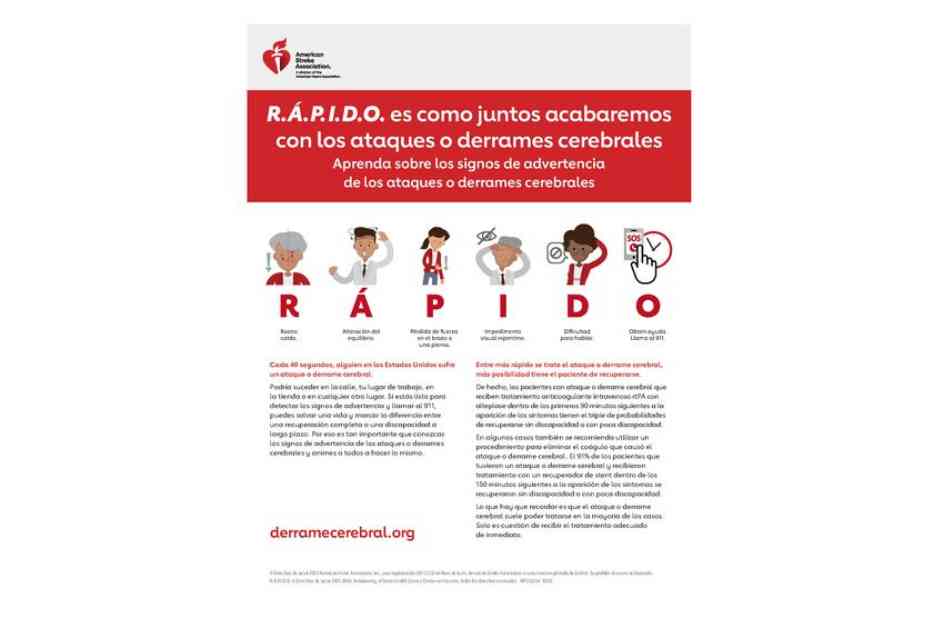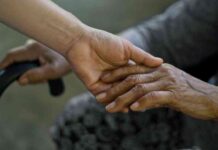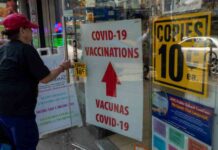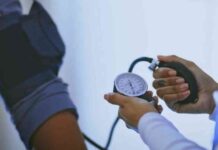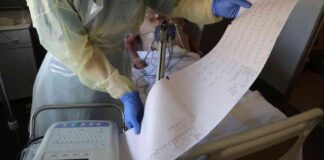Preventing Stroke and Heart Attacks: New Spanish Website Promotes Health Equity
In the United States, stroke is the fifth leading cause of death, disproportionately affecting Hispanic individuals. It ranks as the third leading cause of death among Hispanic women and the fourth among Hispanic men. This disparity is attributed to unmanaged health risk factors, limited access to healthcare, lower health literacy rates, cultural barriers, and socioeconomic determinants of health. To address these issues, the American Stroke Association, a division of the American Heart Association, has launched a culturally relevant Spanish-language website, DerrameCerebral.org.
The new website is specifically designed for the Hispanic and Latino community, offering a digital series of games and activities called Experiencia R.Á.P.I.D.O. This initiative aims to educate users on how to recognize the warning signs of a stroke. It also provides accessible resources on stroke prevention, risk factors, warning signs, treatment, and recovery, including life-saving information for survivors, caregivers, and healthcare professionals. This website is part of the ongoing efforts of the Association to provide a digital experience to all communities and promote better health outcomes for everyone, everywhere.
Dr. Eduardo Sanchez, the Chief Medical Officer for Prevention at the American Heart Association, emphasized the importance of addressing the specific linguistic needs of many Hispanic and Latino community members. By breaking down language barriers, the Association aims to facilitate prompt medical attention. Educating the community on life after a stroke and prevention strategies is crucial for ensuring a healthier future.
As the American Heart Association celebrates 100 years of life-saving service, the launch of this new website and the Spanish-language experience reflect a commitment to reaching communities at higher risk of stroke and other cardiovascular issues. By leveraging cultural relevance, the website aims to develop tools and resources to support the Hispanic and Latino community, ultimately fostering better health outcomes.
A stroke is a medical emergency that can happen to anyone at any time, emphasizing the importance of immediate medical attention. The American Stroke Association recommends learning the warning signs of a stroke and discussing risk management with your healthcare team. Last year, the Association launched a culturally relevant campaign for Hispanics and Latinos highlighting the R.Á.P.I.D.O acronym.
Identifying a stroke R.Á.P.I.D.O:
– R – Rostro caído (Drooping face)
– Á – Alteración del equilibrio (Loss of balance)
– P – Pérdida de fuerza en el brazo (Weakness in the arm)
– I – Impedimento visual repentino (Sudden visual impairment)
– D – Dificultad para hablar (Difficulty speaking)
– O – Obtén ayuda, llama al 911 (Get help, call 911)
To learn more about R.Á.P.I.D.O and raise awareness about stroke, visit https://www.stroke.org/es.
Resources:
– Multimedia resources are available on the right column of the publication link.
– Press release in English.
– Let’s talk about: Hispanics, Latinos, and stroke.
– Stroke resources in Spanish: www.Stroke.org/espanol.
– State of stroke risk factors and medication use for stroke prevention among Hispanic/Latino adults in HCHS/SOL.
– Home blood pressure monitoring | American Heart Association.
In conclusion, the American Stroke Association and the American Heart Association are committed to promoting health equity and reducing disparities in stroke and heart attack outcomes. Through culturally relevant initiatives like the Spanish-language website DerrameCerebral.org and the R.Á.P.I.D.O campaign, these organizations are working towards a future where all individuals have access to lifesaving information and resources. By empowering communities with knowledge and tools, we can strive for a healthier and more equitable society.
